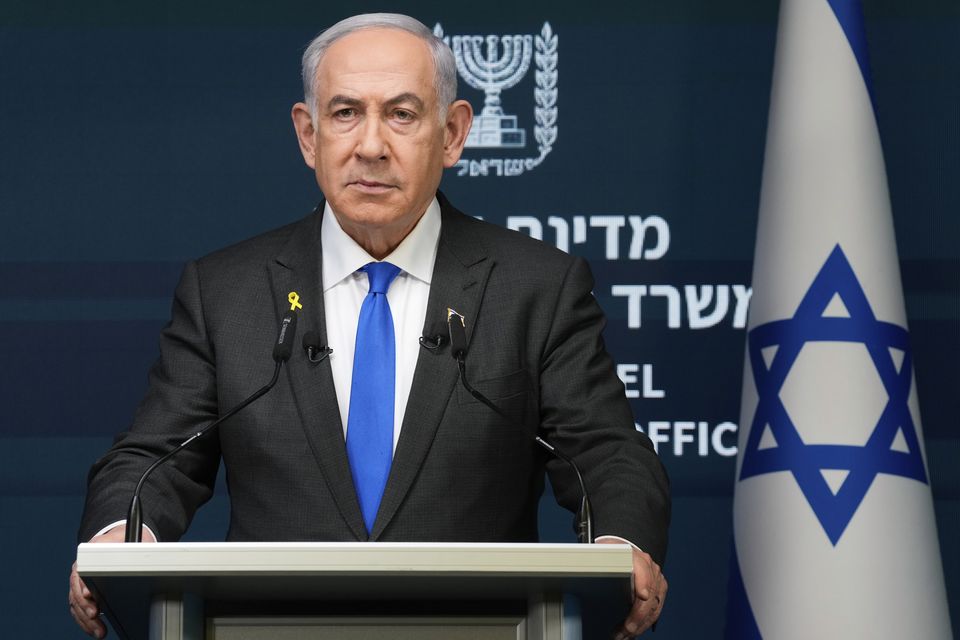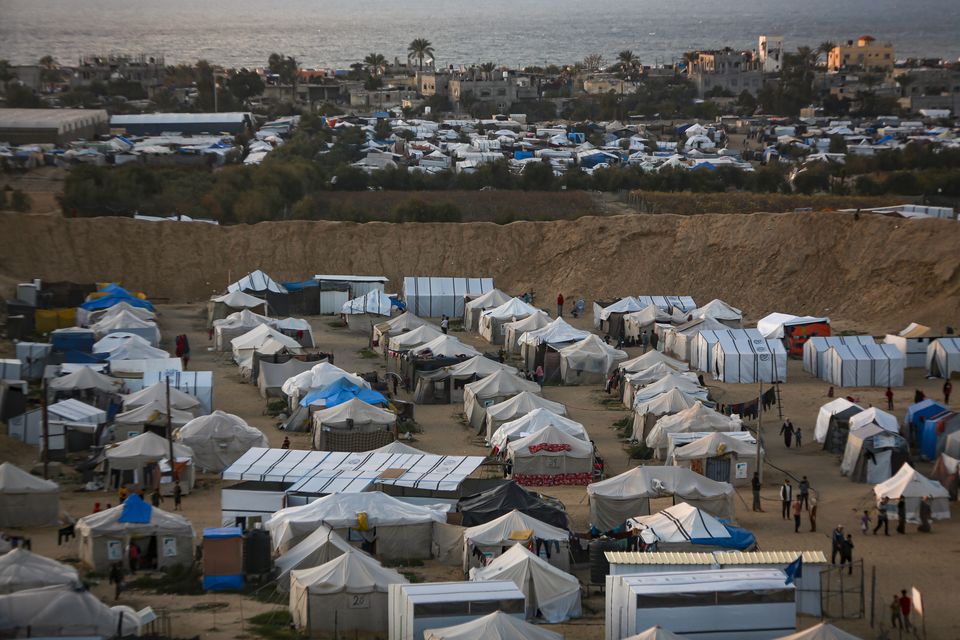Israeli Prime Minister Benjamin Netanyahu said early on Sunday that the ceasefire in Gaza will not begin until Israel has received a list of the hostages set to be released from Hamas.
Barely an hour before the ceasefire was due to begin at 8.30am local time, Mr Netanyahu said he had instructed the military that the ceasefire “will not begin until Israel has in its possession the list of hostages to be freed, which Hamas committed to provide”.
Hamas blamed the delay in handing over the names on “technical field reasons”.
It said in a statement that it is committed to the ceasefire deal announced last week.
Israeli Prime Minister Benjamin Netanyahu (PA)
Hamas is expected to release three hostages later on Sunday in exchange for scores of Palestinians imprisoned by Israel, the first step in a long process aimed at winding down the 15-month war.
The 42-day first phase of the ceasefire should see a total of 33 hostages returned from Gaza and hundreds of Palestinian prisoners and detainees released.
Israeli forces should pull back into a buffer zone inside Gaza and many displaced Palestinians should be able to return home. The devastated territory should also see a surge in humanitarian aid.
Palestinian residents began returning to their homes in parts of Gaza City early on Sunday, even as tank shelling continued to the east, closer to the Israeli border, overnight.
This is the second ceasefire in the war, longer and more consequential than the week-long pause over a year ago, with the potential to end the fighting for good.
Negotiations on the far more difficult second phase of this ceasefire should begin in just over two weeks.
Major questions remain, including whether the war will resume after the six-week first phase and how the rest of the nearly 100 hostages in Gaza will be freed.
A view of a tent camp for displaced Palestinians in Khan Younis, Gaza Strip, on Saturday (Jehad Alshrafi/AP)
Israel said on Sunday it recovered the remains of a soldier killed in the 2014 Gaza war, hours before the ceasefire and hostage release were set to begin.
Oron Shaul was killed in the previous conflict and his remains have been held by Hamas. The bodies of Shaul and another soldier, Hadar Goldin, remained in Gaza after the 2014 war and had not been returned despite a public campaign by their families.
The families fought to have the bodies returned as part of any ceasefire deal in the current war.
Mr Netanyahu said on Saturday that Israel is treating the ceasefire with Gaza as temporary and retains the right to continue fighting if necessary.
Israel’s Cabinet approved the ceasefire early Saturday in a rare session during the Jewish Sabbath, more than two days after mediators announced the deal.
The warring sides were under pressure from both the outgoing Biden administration and President-elect Donald Trump to achieve a deal before the US presidential inauguration on Monday.
The toll of the war has been immense with more than 46,000 Palestinians killed, according to Gaza’s Health Ministry.
The October 7 2023, Hamas-led attack on southern Israel that sparked the war killed more than 1,200. Hundreds of Israeli soldiers have died.
Around 90% of Gaza’s population has been displaced.
The United Nations says the health system, road network and other vital infrastructure have been badly damaged.
Rebuilding – if the ceasefire reaches its final phase – will take several years at least. Major questions about Gaza’s future, political and otherwise, remain unresolved.

